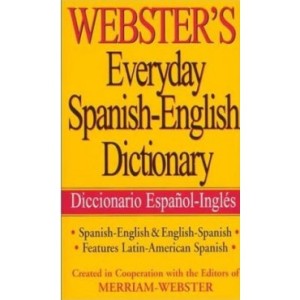I have a teeny bit of news, but it’s in five or six languages! My first ever picturebook, published in 1980 by J.B. Lippincott, then taken on by Harper and Row, which has been out of print for years, is being reissued by a small start-up as a bilingual paperback and Kindle book. Bab’l Books […]
Add a CommentViewing: Blog Posts Tagged with: dual language, Most Recent at Top [Help]
Results 1 - 3 of 3
Blog: Constructions: joyce audy zarins (Login to Add to MyJacketFlap)
JacketFlap tags: Diverse books, children's books, picture books, e-books, Boston, environmental theme, Joyce Audy Zarins, Writing today, previously published, dual language, Add a tag
Blog: The Open Book (Login to Add to MyJacketFlap)
JacketFlap tags: Reading Aloud, parents, Educators, bilingual education, reading comprehension, hispanic heritage, Educator Resources, Latino/Hispanic/Mexican, dual language, ELA common core standards, ELL/ESL and Bilingual Books, Add a tag

Peggy McLeod, Ed. D. is Deputy Vice President of Education and Workforce Development at the National Council of La Raza (NCLR).
![]() Today we are featuring one of First Book’s celebrity blog series. Each month First Book connects with influential voices who share a belief in the power of literacy, and who have worked with First Book to curate a unique collection that inspires a love of reading and learning. All recommended books are available at deeply discounted prices on the First Book Marketplace to educators and programs serving children in need. Peggy McLeod, Ed. D. the Deputy Vice President of Education and Workforce Development at the National Council of La Raza (NCLR), writes on engaging Latino families and children in reading and learning.
Today we are featuring one of First Book’s celebrity blog series. Each month First Book connects with influential voices who share a belief in the power of literacy, and who have worked with First Book to curate a unique collection that inspires a love of reading and learning. All recommended books are available at deeply discounted prices on the First Book Marketplace to educators and programs serving children in need. Peggy McLeod, Ed. D. the Deputy Vice President of Education and Workforce Development at the National Council of La Raza (NCLR), writes on engaging Latino families and children in reading and learning.
Any student who has parents that understand the journey from preschool to college is better equipped to navigate the road to long-term student success. While parent engagement is critical to increasing educational attainment for all children, engaging Latino parents in their children’s schooling has typically been challenging – often for linguistic and cultural reasons.
The National Council of La Raza’s (NCLR) parent engagement program is designed to eliminate these challenges and create strong connections between schools, parents, and their children. A bilingual curriculum designed to be administered by school staff, the Padres Comprometidos program empowers Latino parents who haven’t typically been connected to their children’s school. Many of the parents the program reaches are low-income, Spanish-speaking, first and second generation immigrants. Through Padres Comprometidos, these parents gain a deeper understanding of what the journey to academic success will be like, and how they can play a role in preparing their children for higher education. Prior to participating in the program, not all parents expected their children to attend college. After the program, 100% of parents indicated that they expected their children to attend college.
Much of Padres Comprometidos success rests on the program’s ability to address language and culture as assets, rather than as obstacles to be overcome. This asset building strategy extends to NCLR’s partnership with First Book. Together, we’re working to ensure Latino children of all ages have access to books that are culturally and linguistically relevant, books they need to become enthusiastic readers inside and outside of the classroom. Click here to access the three parent engagement curricula developed by NCLR—tailored to parents of preschool, elementary and secondary school students.
Below you will find a few tips and titles that can help you engage families and get children – and their parents and caregivers – reading and learning.

La Llorona
1. Find ways to connect stories that parents know about to help them engage in reading and conversation with their children. This Mexican folktale can open that door: La Llorona .

Spanish-English Dictionary
2. Keep an English/Spanish dictionary handy to use when you have a parent visiting or to give away to a parent or caregiver who needs it. It will show them that you’re making an effort to engage in their language of comfort, such as Webster’s Everyday Spanish-English Dictionary.
3. Learn about the children you serve and their heritage, and identify books that will affirm them. This Pura Belpré award winner is actually about Pura Belpré, the first Latina (Puerto Rican) to head a public library system: The Storyteller’s Candle.
4. Share books that include some of the everyday experiences of the children and neighborhoods you serve, like this story highlighting the value of community and family: Grandma and Me at the Flea.
5. Bilingual books provide family members and caregivers the opportunity to read the same books their children are reading, but in their language of comfort. Families will love reading about all the colors of the rainbow in English and Spanish: My Colors My World.
Sign up with First Book to access these and other great titles on the First Book Marketplace.
Filed under: Educator Resources, ELL/ESL and Bilingual Books Tagged: bilingual education, dual language, Educators, ELA common core standards, hispanic heritage, Latino/Hispanic/Mexican, parents, Reading Aloud, reading comprehension
Blog: La Bloga (Login to Add to MyJacketFlap)
JacketFlap tags: teaching, bilingual students, dual language, English laguage learners, Add a tag
The beginning and end result was that I had four boys who tended to bully, three with possible physical abuse issues--a combination that produces havoc in a classroom.
But teachers work with what they have. They try different strategies, behavior reward systems, consult with others. In the end no one else has to face the daily task of imparting knowledge to the kids except you, no matter how difficult the conditions.
Over the years I'd often heard from other teachers about "that one class from hell" or other descriptions to the same effect. I guessed that this past year was finally my turn, although I know it was not this particular group of kids who created a most memorable gauntlet; conditions set up from the beginning cast their unfortunate lot together.
What I'd implemented to improve behavior, particularly for my four bully-candidates, had worked just partially or temporarily. Conferencing with their parents had its downsides as well. Somehow, such parents can see in my eyes that I know there is or was possible physical abuse going on at home. It originates in my own history in an abusive home. Such parents don't take kindly to me.
So, this week--and only six more till the end of the year--started out similar to the rest of the year: I tried to teach and keep my boys from getting into too much trouble, and they tried to learn while still getting themselves in trouble, especially outside of my classroom.
Yesterday, Friday afternoon. The end of two weeks of testing that taxes and even depresses some kids. They're already anticipating the weekend, and outside it's springtime. Despite all this, I'm getting read to run my bilingual students through their English chant and mime of "Peas Porridge Hot." It's in the curriculum, not my choice.
I divide the kids into teams of girls and boys, with the challenge of which team can run the poem and win all the points. If one student fails to chant or mime a part of the poem, that means a point for the other team. The girls go first and inevitably, two who are BFFs get into a staring match that leads to accusations crossing between them like darts laced with hemlock. In the end the girls' team loses twelve points. They're muttering, cursing, blaming each other or just feeling beat. Some don't want to continue playing and would rather be outside pulling dandelions and blowing the seeds.
The boys go next. That's probably when the air in my room parted and a shower of duende dust drenched them all, because otherwise I can't explain what next transpired.
My main bullyboy, call him Alfredo, pulled away from the line of boys and placed himself in front to address them. He explained how all of them had to speak each part of the poem. Then he demonstrated each of the hands motions I'd taught them, nothing very elaborate. Throughout this, he had their attention, probably because he also happens to be one of the brightest kids and will either become captain of his high school football team and chess club, or leader of a local tagging and window-breaking gang one day.
Even more surprising to me was that when he was done, he returned to the line like he was just another member of his te






Cheers! Here's to duende dust.
It's those magical moments in the classroom that rejuvenate the teaching spirit! Thanks for sharing. Adelante y que vivan los estudiantes y todos nuestros maestros. :)
Maravilloso ;)
What a great story of real teaching. You don't need an evaluation to tell you how much of a difference you make.
Rebecca
I was enthralled and lost in your words. That was one of those perfect moments in time that will forever replay in your mind, but it will never be as good as the way you just expressed it. Your power of words is pure magic Maestro!
My eyes still sting with how your words moved me.
E.
I love this story, Rudy. Thanks so much for writing it. And good for you, sending the kids to the office for something they did so well.
Eleanor